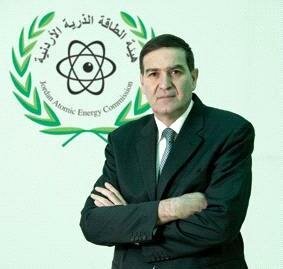Jordan made the right decision
By Chen Kane – Earlier this week Jordan announced that it has entered the final phase of deliberations with two potential suppliers for its first nuclear power reactor. The good news: the Canadian company AECL is out of the race, leaving the Russian firm Atomstroyexport and a French-Japanese consortium comprised of AREVA and Mitsubishi Heavy Industries as contenders. Not that I have anything against Canadians; I love Canadians. But I wouldn’t want to see CANDU (Canada Deuterium Uranium) reactors anywhere in the Middle East.

In May 2010, Jordann arrowed down its potential reactor designs to three: the Atomic Energy of Canada Ltd’s (AECL’s) Enhanced CANDU 6 (EC6) reactor, the AES-92 VVER-1000 reactor from the Russian firm Atomstroy export, and the ATMEA1 reactor by AREVA and Mitsubishi. Jordan was expected to announce its choice of vendor this month, but decided to enter parallel negotiations with the Russians and Japanese-French companies.Ammanhopes to start operating its first nuclear power plant in 2020.
The CANDU was an attractive option for Jordan: Jordan has an indigenous supply of natural uranium which could be used to fuel the reactor. That would have allowed it to enrich uranium in country – as opposed to sending the uranium abroad for enrichment and incurring substantial costs. AECL’s offer of two small reactors (700-MW each), was also attractive since it allows redundancy in case one reactor goes out of service – a feature that the two other bidders did not offer.
On the other hand, of the three reactor designs Jordan examined, the CANDU design had the highest proliferation risk. Aside from tritium production as a by-product in these reactors (tritium is used to boost the yield of nuclear weapons and is a necessary component of both fission and thermonuclear weapons), safeguards application on CANDU reactors is substantially more difficult than on light water reactors. CANDU fuel bundles are smaller, there are more fuel elements in the core and in storage, and the CANDU reactor’s online refueling feature greatly expands the potential diversion scenarios. So, Jordan’s decision to drop the CANDU was important and very positive. I hope Turkey will follow suit.
Still, Jordan has yet to reach a final decision on the reactor design and address several other crucial issues related to its program, such as spent fuel arrangements, the ability to finance the program, domestic enrichment, export controls, whether and when it will adopt the amended Small Quantities Protocol, and site selection.Jordan’s decision on each of these issues could have domestic, regional, and international implications.
Photo: Jordan Times.


These are all weaknesses in th
Richard! Does Aussie Dave know
Postol's latest publication ab
Mr. Rubin, I am curious if you
Thank you Uzi. You have obviou
Bruce came back to CSTPV's 20t
Bruce came back to CSTPV's 20t
Thanks for publishing in detai
The 'deal' also leaves Israel
I think that Geneva Talks pose